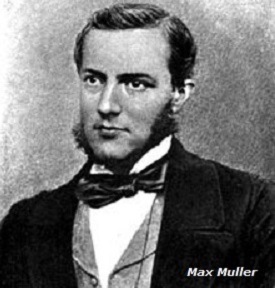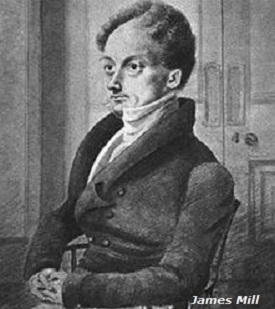
- Ancient Indian History - Home
- Study of Indian History
- Writing of Ancient Indian History
- Imperialist Historiography
- Historiography Nationalist Approach
- Marxist School of History
- Sources of Ancient Indian History
- Archaeological Sources
- Geographical Background
- Geography in Ancient Literature
- Stone Age Cultures
- Mesolithic Culture
- The Neolithic Age
- Chalcolithic Period of India
- Chalcolithic Culture In India
- Harappan Civilization
- Harappan Town Planning
- Harappan Crafts & Industries
- Harappan Culture
- Harappan Religion
- Harappan Chronology
- Vedic Civilization
- Vedic Society
- Vedic Politics
- Vedic Religion & Philosophy
- The Aryan Invasion
- Later Vedic Age
- Social System after Vedic Age
- Achievements of Indian Philosophy
- Evolution of Jainism
- Evolution of Buddhism
- Alexander’s Campaign in India
- Maurya Dynasty
- Kalinga War & its Impact
- Society & Economy during Mauryas
- Mauryan Governance
- Early History of South India
- Age of Smaller Dynasties
- Literature of Satavahana Period
- Society of Satavahana Period
- Economy of Satavahana Period
- Technology of Satavahana Period
- Chola Dynasty
- Pandya Dynasty
- Chera Dynasty
- Period of Foreign Invaders
- Gupta Period
- Decline of Guptas
- Governance of Gupta Period
- Literature of Gupta Period
- Economy in Gupta Period
- Science & Tech of Gupta Period
- India after the Gupta Period
- Period of Harsha
- South India during the Harsha Period
- Kadamba Dynasty
- History of Kamarupa
- India after Harsha
- Gurjara Pratiharas
- Palas of Bengal
- Rashtrakutas of Deccan
- Literature after the Harsha Period
- Society after the Harsha Period
- Economy after the Harsha Period
- Religion after the Harsha Period
- References & Disclaimer
Imperialist Historiography
The Asiatic Society of Bengal established in 1784 that contributed towards the writing of the Indian History.
Imperialist Writings were mostly reflecting the contemporary debate on religious faith and nationality and also their interests in enlarging the European colonies for economic exploitation.
Imperialist Intellectuals
- Leading imperialist intellectuals of the 19th century were −
- Max Muller,
- J.S. Mill,
- William Jones,
- Karl-Marx, and
- F. W. Hegel.
The works of a few intellectuals have been described below −
Max Muller

Friedrich Max Muller is considered as one of the most respected Indologists of the nineteenth century. He was a German, but lived in England. On the financial support of the British East India Company, he undertook massive jobs of translation and interpretation of the Indian religious texts in English.
He attained the best achievement of getting translated a huge mass of Sanskrit texts into English, but his approach and intention were never free from the prejudice.
Muller was inspired by his religious belief and political requirements that affected his entire approach of unbiased writing and interpretation of Indian history.
The guiding principle under which William Jones, Max Muller, and Vincent Smith wrote Indian history, was to settle all history within the period up to 4,000 B.C.
In 1868, Max Muller wrote to the Duke of Argyll The ancient religion of India is doomed, and if Christianity does not step in, whose fault will it be?"
The majority of works done on Indian history during the 18th and 19th centuries were guided by the preconditions imposed by the belief in the Genesis and to reject all the writing that were projecting India's past in terms of great civilization and Indian philosophy and thoughts indicating great antiquity for the origins of universe and human beings.
The major factor that is responsible for the distortion of the ancient Indian history was the British imperial interests in India. They were worried about the fact that popularity of the Indian text among British civilians might develop an inferiority complex in them.
James Mill

-
Between 1806 and 1818, James Mill wrote six volumes on the history of India without ever visiting India or knowing any Indian language. He divided Indian history into three periods i.e.
Hindu Period,
Muslim Period, and
British Period (all he did without any logic and justification).
Mill presented an extremely demeaning picture of Hindu periods. He condemned every institution, idea, and action of the Hindu period and held Hindus responsible for all the ills of the country.
Mills book was introduced as a text book in the Harley bury school in England, which was established to educate the young Englishmen coming to India as administrators and civil servants.
James Mill, his son John Stuart Mill, and his disciple Thomas Macauley played a very important role in shaping the imperialist policy in India and the future of Indian education in the core of which was the distorted history of ancient India.
V.A. Smith, an officer serving the British Government in India, prepared the text book called Early History of India in 1904. He emphasized the role of foreigners in ancient India. Alexander's invasion accounted for almost one-third of his book.
Smith's racial superiority is clear with his sentence i.e. "The triumphant progress of Alexander from the Himalayas to the sea demonstrated the inherent weakness of the greatest Asiatic armies when confronted with European skill and discipline".
Smith had given the impression that Alexander had conquered the whole of India from the Himalayas to seas while the fact is that, he only touched the northwestern borders of India.
Smith had presented India as a land of dictatorship, which did not experience political unity until the establishment of the British rule.
The whole approach of Imperial historians was to give such interpretations of Indian history to denigrate Indian character and achievements, and justify the colonial rule.
Vincent Arthur Smith (1843-1920) prepared the first systematic history of ancient India that published in 1904.
On the basis of the Bible story of Creation Bishop Usher had calculated that the whole universe was created at 9.00 a.m. on 23rd October 4004 B.C. and the Great Flood took place in 2,349 B.C.
In the light of Indian concept, the age of the Earth is several hundred million years that the Bible stories of creation appears to be wrong and threatened the very foundation of the faith.
With the object to promote the Sanskrit learning among the English, Boden Professorships of Sanskrit at Oxford University was endowed by Colonel Boden. This was precisely for enabling his countrymen to proceed in the conversion of the natives of India to the Christian religion.
Prizes were offered to the literary works for refutation of the Hindu religious systems and undermining Indian tradition.